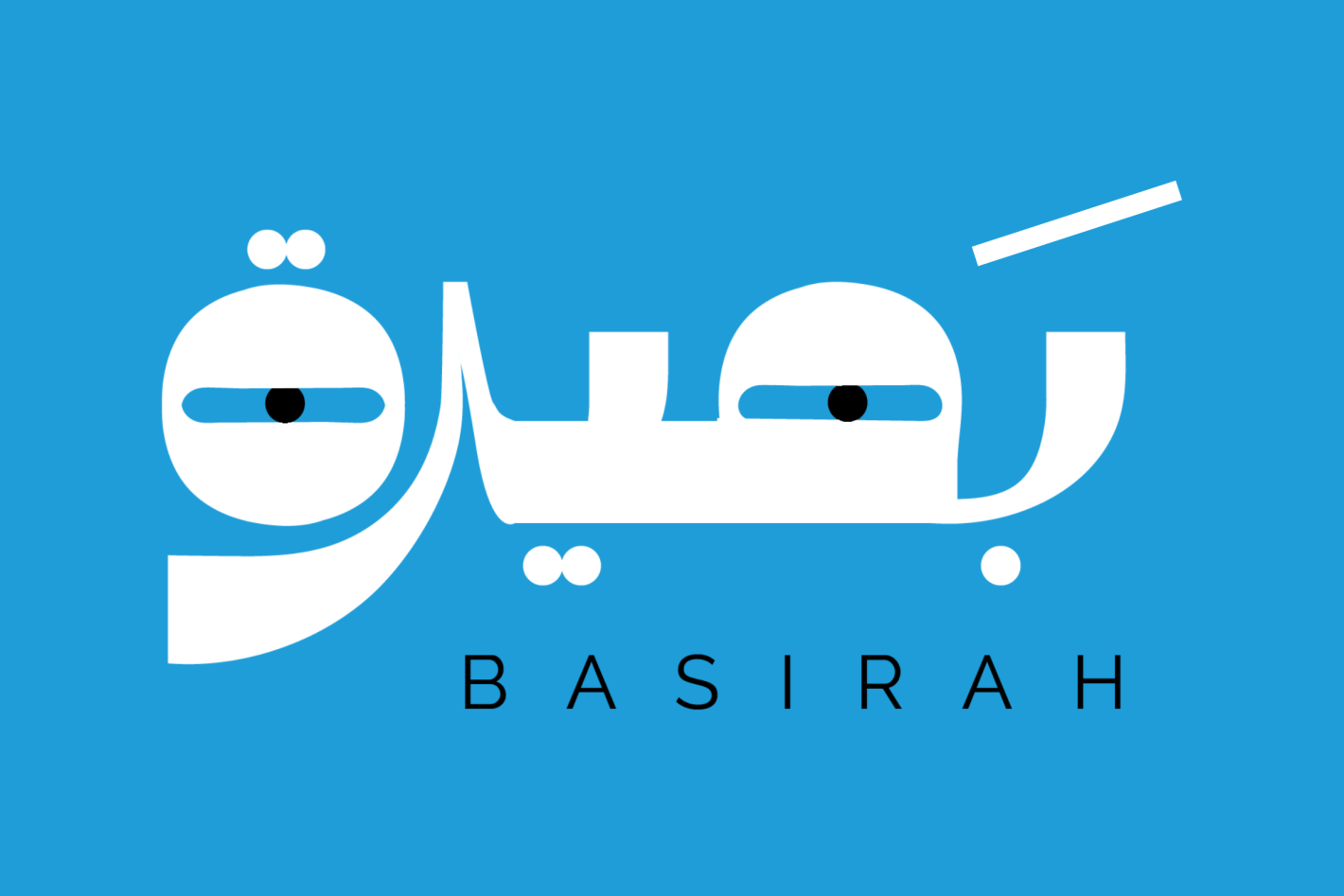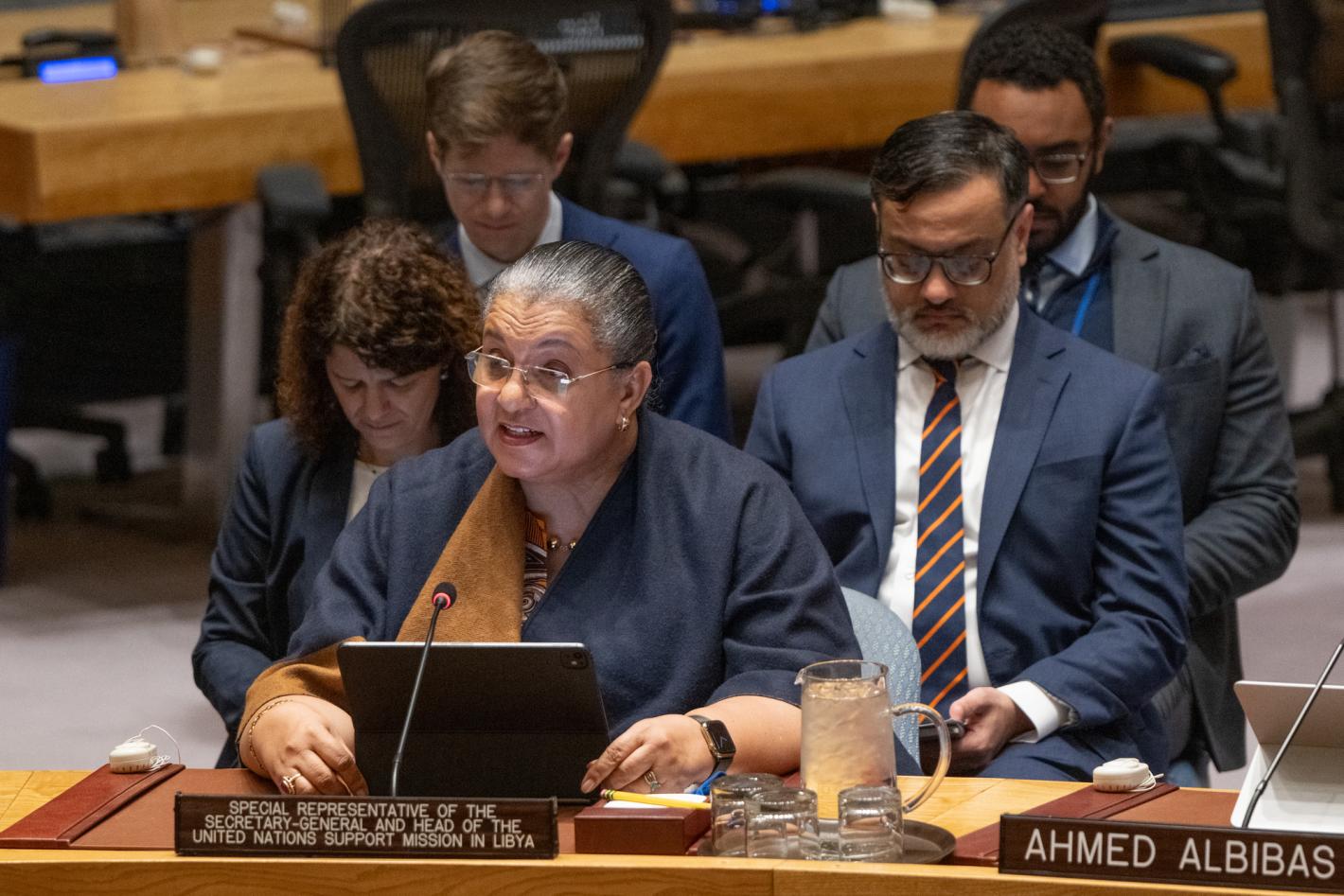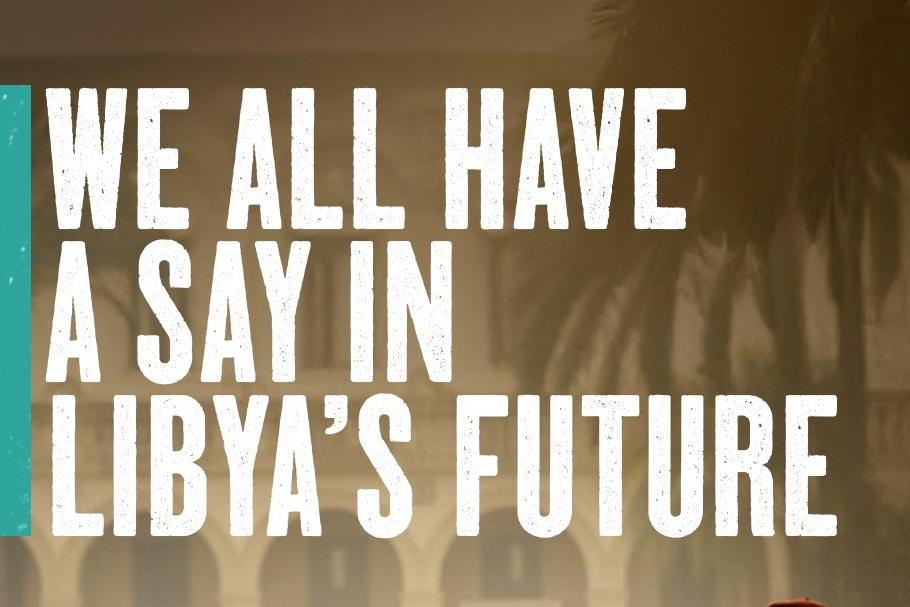SEBHA, 27 November 2024 – A United Nations inter-agency delegation, led by Deputy Special Representative of the Secretary-General (DSRSG) for Political Affairs, Officer-in-Charge of UNSMIL, Stephanie Koury, and Acting Deputy Special Representative of the Secretary-General, Resident and Humanitarian Coordinator, Mr. Aeneas Chuma, visited Sebha today to engage with key stakeholders and partners on a range of issues.
The delegation included representatives from the UN Development Programme (UNDP), UN Children’s Fund (UNICEF), World Food Programme (WFP), International Organization for Migration (IOM), UN High Commissioner for Refugees (UNHCR), United Nations Population Fund (UNFPA) and UNSMIL political and security sections.
During the visit, the UN delegation met with civil and military officials, civil society leaders and community members to discuss pressing local issues and potential pathways for sustainable development and lasting peace.
The meetings brought together municipal officials and local leaders as well as community actors from Sebha, Murzuq, Qatrun, Ghat, Brak, and Ubari in addition to security leaders. who highlighted the importance of effective local governance to provide and maintain basic services such as health, education and waste management for the Libyan people in the South.
DSRSG Koury expressed her pleasure to be in Sebha after so many years, “I am glad to return to Sebha after a long time. I am here today to stress that the southern region is among the UN’s top priorities.”
She congratulated the municipalities on the successful conduct of the elections and reiterated UNSMIL’s unwavering support for this democratic exercise. “It is time for Libyans to exercise control over their political lives,” DSRSG Koury said. “We applaud the effective participation of southern constituencies in these elections, and we will spare no effort to work with all of you to support social cohesion and long-lasting peace.”
DSRSG Koury engaged with community stakeholders to discuss the political and security situation in the south and encouraged their participation in shaping the future of Libya in the UNSMIL-facilitated political process. At Sabha University, academics, civil society representatives and others shared their views of the priority issues to be addressed in the political talks, the internal and regional challenges, and the role of the United Nations. She emphasized the importance of inclusive dialogue, consensus-building, and active and meaningful participation, particularly from the women and youth, in addressing short term and longer-term needs.
She also highlighted the importance of fair and equitable management of resources and equal treatment for all Libyans. “The UN views this issue as paramount for any successful political process,” she said, adding that maintaining civic space, and equal rights in Libya was important to creating a unified approach for all people in Libya.
DSRSG Chuma and the heads of UN agencies saw first-hand the progress of UN-supported development projects in the area. “The south has immense potential, and we are committed to supporting its sustainable development and stability under the UN Sustainable Development Cooperation Framework 2023–2025, which was developed in partnership with the Libyan authorities, to address the challenges and priorities of communities across the country, including the South,” he said.
The delegation also met senior military officials to discuss the improved security situation in the south and border security challenges noting the UN’s ongoing dedication to support Libya’s transition to peace and stability.
The UN will continue to work with all stakeholders to address the challenges facing the country and promote an inclusive political process, going hand-in-hand with its support to sustainable development and human rights across the country.






